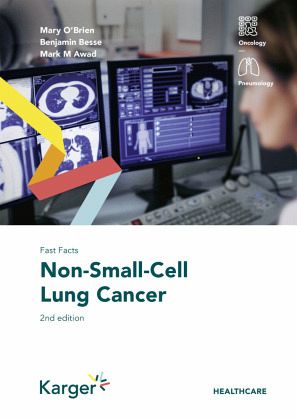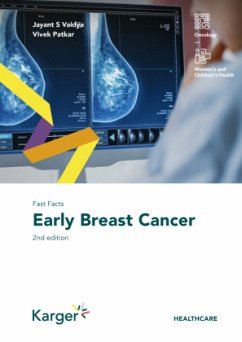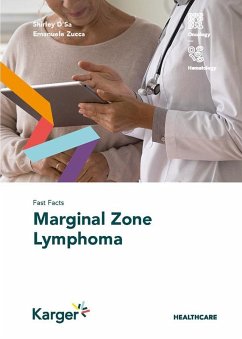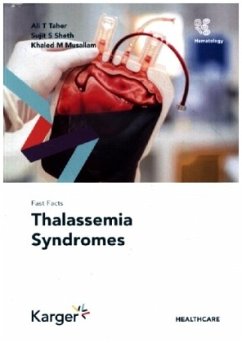
Fast Facts: Non-Small-Cell Lung Cancer
Versandkostenfrei!
Sofort lieferbar
19,25 €
inkl. MwSt.

PAYBACK Punkte
0 °P sammeln!
Despite an overall decrease in tobacco use, lung cancer (80-85% of which is non-small-cell lung cancer [NSCLC]) is still the leading cause of cancer death in both men and women worldwide. Annual low-dose CT screening of high-risk individuals has the potential to detect early-stage tumors, which can usually be successfully treated with a combination of surgery, radiotherapy, and chemotherapy and, in some cases, targeted therapy. However, most patients with NSCLC still present with advanced or metastatic disease. For these patients, initial therapy is guided by the tumor's molecular characterist...
Despite an overall decrease in tobacco use, lung cancer (80-85% of which is non-small-cell lung cancer [NSCLC]) is still the leading cause of cancer death in both men and women worldwide. Annual low-dose CT screening of high-risk individuals has the potential to detect early-stage tumors, which can usually be successfully treated with a combination of surgery, radiotherapy, and chemotherapy and, in some cases, targeted therapy. However, most patients with NSCLC still present with advanced or metastatic disease. For these patients, initial therapy is guided by the tumor's molecular characteristics and patient's performance status. Targeted therapies have significantly improved clinical outcomes and, for some patients with no targetable genetic alterations, immunotherapy has demonstrated significant overall survival benefit. This insightful guide is designed to bring you up to speed with the latest developments and is important reading for all health professionals and medical trainees working in this fast-moving field. Table of Contents: -Prevention and screening -Diagnosis and staging -Surgery -Radiotherapy -Systemic therapy in non-metastatic NSCLC -Systemic therapy in advanced-stage/metastatic disease without a molecular driver -Personalized treatment in advanced NSCLC -Oligometastatic disease and brain metastases












